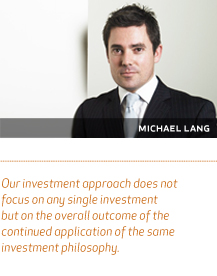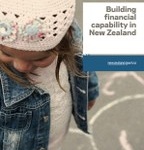New Zealand Funds Management (NZFM) has diversified its Australasian shares exposure, appointing an external locally-based manager in the asset class for the first time.
Michael Lang, NZFM chief investment officer, said Devon Funds Management would pick up a $10 million Australasian equities mandate from April 1 this year.
Lang said the deal was a “significant appointment” for multi-manager firm NZFM, which traditionally has managed most Australasian shares in-house.
“We wanted to show our clients that we are most interested in giving them access to top quality mangers to look after their money,” he said. “It doesn’t matter that we also [manage Australasian shares] in-house. There are no sacred cows.”
According to Lang, Devon offers a complementary investment style to NZFM what would benefit investors.
He said while NZFM concentrates on “harvesting dividend yields” and capital preservation, Devon has a wider growth-oriented remit.
NZFM will invest via the Devon Alpha Fund, which closed to new money earlier this year after hitting about $130 million under management.
Lang said NZFM appoints managers either to gain a strategic tilt to identified asset classes or as a way to gain access to quality management.
“With Devon it wasn’t a tilt,” he said. “As trust and confidence builds, we’ll look for other ways to work together too.”
The $890 million NZFM has also recently increased exposure to several of its underlying funds including bond managers Wellington and PIMCO as well as hedge funds ISAM, Harness, Odey, Paulson, Survetta and Universa.
At the same time, NZFM ended its mandate with the Commodity Strategies fund, run by the recently-deceased, Robert Holroyd.
Lang said at any one time NZFM would have 10-20 underlying managers, of which about two-thirds are long-term appointments while the remainder operate as tilts.
“There’s a natural rotation,” he said.
Lang said the firm reviews about 100 managers each year.
According to the most recent NZFM portfolio report, the firm had 15 external managers as at the end of this February.
 Michael Lang
Michael Lang
Chief Investment Officer | BA (Econ), LLB (Hons)
Biography
Michael has over 15 years of investment industry experience. He returned to NZ Funds after spending a period of time in London where he was a Partner at Eclectica Asset Management, a global macro hedge fund which won Lipper’s Top Performing Newcomer in Hedge Funds in 2004.
Michael joined NZ Funds in 1992 as an equity analyst. After completing an internship at Wellington Management Company in Boston, USA in 1997 he managed the New Zealand Property & Infrastructure Fund ($80 million) from 1998 to 2003. The fund won FundSource top performing New Zealand property fund in 1999, 2000 and 2001. Michael also managed the New Zealand Equity Income Trust ($200 million) which won FundSource top performing New Zealand equity fund in 1999 and 2000. Michael’s work overseas has seen him spend time in New York, San Francisco and London.
 We recommend reading Peter Ashworth’s article, recently published in the Otago Daily Times.
We recommend reading Peter Ashworth’s article, recently published in the Otago Daily Times.










